“I used to spend afternoons reading in bed. Tommaso would call and find me there. He could have kissed me. I wouldn't have resisted, out of boredom. But he was satisfied to watch me as I read. All those purposeless books.”La notte [The Night] (Michelangelo Antonioni, 1961)
Feb
7
Falò delle vanità – 1497
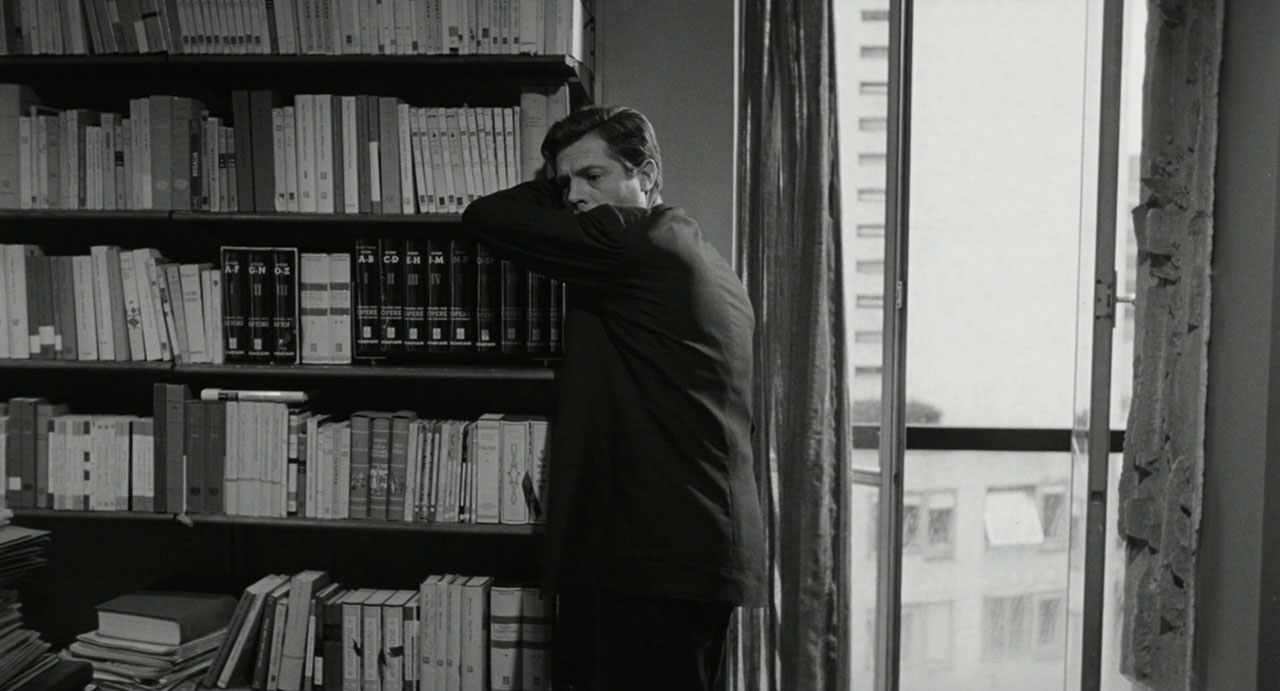
Author Giovanni Pontano (Marcello Mastroianni) pondering next to a full bookcase. DP: Gianni Di Venanzo.
Books, or art, in commemoration of Savonarola's 1497 Florentine falò delle vanità (bonfire of the vanities).
– Lidia
A lavish #CocktailParty in celebration of the launch of a novel is bookended by tragedy, in the loss of a befriended writer and the unraveling of another writer and his wife's marriage.
romance
Тіні забутих предків [Shadows of Forgotten Ancestors] (Sergei Parajanov, 1965)
Feb
6
St. Dorothea of Caesarea
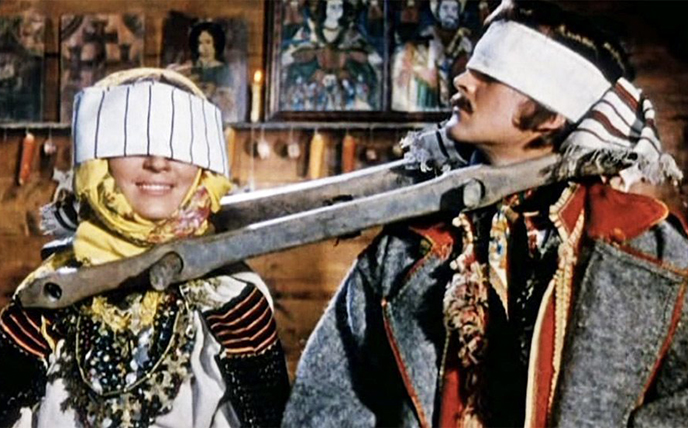
The childhood lovers to be newlyweds. During the wedding ceremony, the bride suddenly breaks out in smile. DPs: Yuri Ilyenko & Viktor Bestayev.
A wedding on the day of Dorothea of Caesarea, patron saint of horticulture, brewers, brides, florists, gardeners, midwives, newlyweds, and love.
“I don't want your husband. I want a parachute!”Madam Satan (Cecil B. DeMille, 1930)
Feb
4
Charles Lindbergh's born
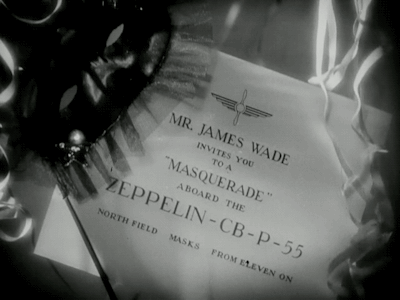
You're cordially invited to Mr. James Wade's “Masquerade”, aboard the Zeppelin – CB – P – 55. Do wear a mask. DP: Harold Rosson.
A movie about aviation for that eugenicist Charles Lindbergh's birthday.
– Trixie
“Feast your eyes. Glut your soul on my accursed ugliness.”The Phantom of the Opera (Rupert Julian, Lon Chaney, Ernst Laemmle + Edward Sedgwick, 1925)
Jan
28
Gaslights

An enormous gaslit chandelier dangles over the Paris Opéra audience's heads. DPs: Milton Bridenbecker, Virgil Miller & Charles Van Enger.
Gaslights for the first recorded public street lighting powered by gas, demonstrated in Pall Mall, London, on 28 January, 1807. The introduction of gaslight had a major influence on theatre and opera, including the new Paris Opera (1875), which was lit by no less than 960 gas jets. Thanks to the brilliant light, stage actors could tone down their mannerisms and stage makeup.
– The Phantom
However, in the dark dungeons under the Opéra lives a pitiful creature, doomed to dwell in darkness. His makeup, provided by The Man of a Thousand Faces, Lon Chaney, was both grotesque and eerily real .
– Now, see! You kill-a de monk!
– Pay him for that baboon… or I'll run you in!The Cameraman (Edward Sedgwick + Buster Keaton, 1928)
Jan
14
National Dress Up Your Pet Day
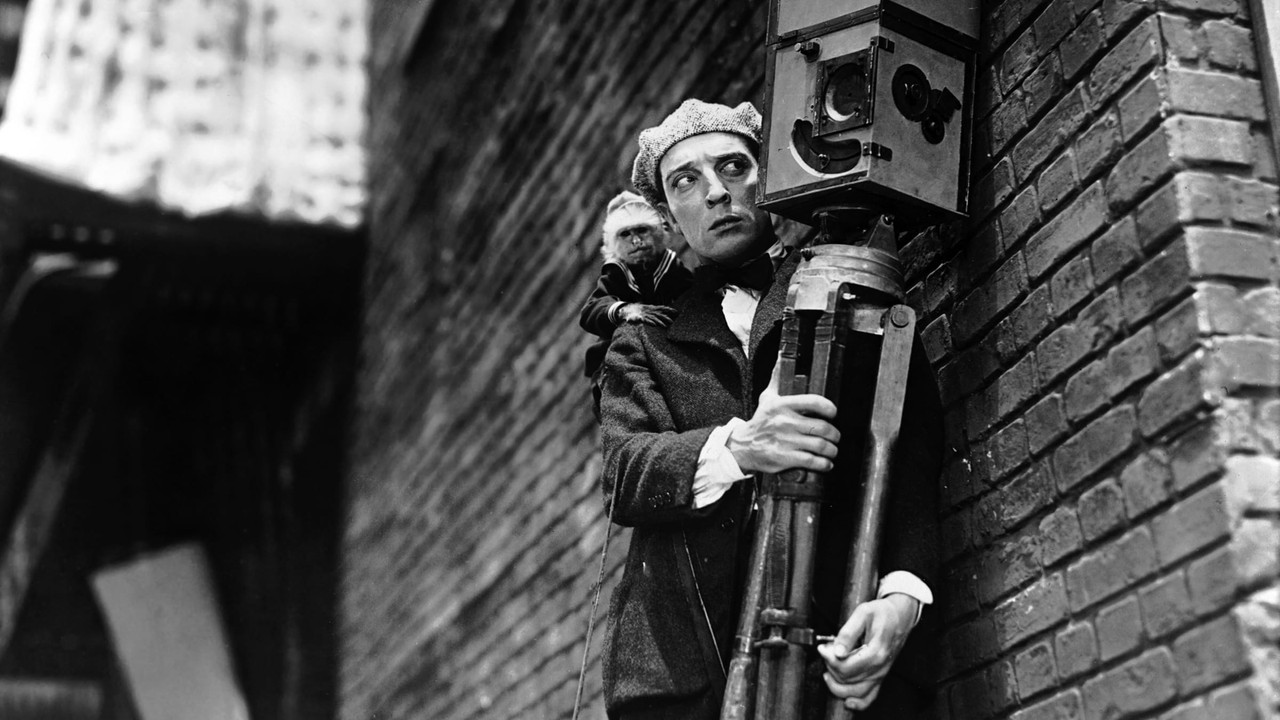
Buster (Buster Keaton) with Josephine the monkey on his shoulder. DPs: Reggie Lanning & Elgin Lessley.
A funnily dressed pet for National Dress Up Your Pet Day (USA) (please don't!).
After cameraman Buster accidentally knocks over a monkey, he has no choice but to take the sailor-suited simian along on his movie shoots.
Libahunt [Лесная легенда / Werewolf] (Leida Laius, 1968)
Jan
13
soup

A dinner table shown from above. Several people, we mainly see their hands and wooden spoons, eat from a hand-carved bowl. DP: Algimantas Mockus.
“Better to be with wolves in the forest, than with people like you!”Libahunt [Лесная легенда / Werewolf] (Leida Laius, 1968)
Jan
13
wolf moon
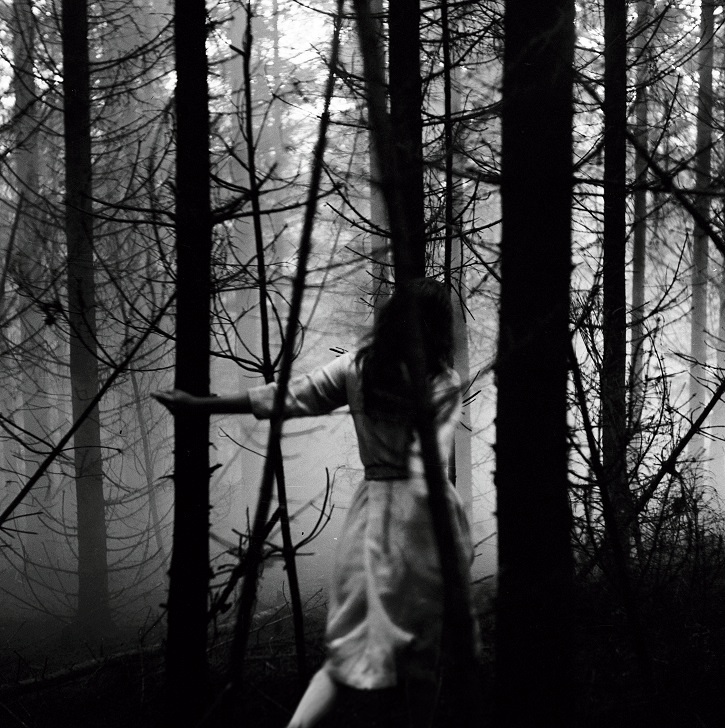
Tiina (Ene Rämmeld) walking through the forest. DP: Algimantas Mockus.
Wolves for Wolf Moon, the first full moon after Yule.
In Livonia, which covers modern day Estonia, the 17th century was when the werewolf trials reigned.
Tiina, a young liberated woman taken in by a family of farmers after her mother was put on trial for witchcraft, is accused of hunting with the wolves as a werewolf by her half-sister with whom she shares a lover.
– How much did you win? – 500,000 in less than an hour. It's immoral, but no more than anything else. No more than poverty or ugliness.La baie des anges [Bay of Angels] (Jacques Demy, 1963)
Jan
9
Wheel of Fortune

Jean (Claude Mann) and Jackie (Jeanne Moreau) at a casino table. The tension is palpable. DP: Jean Rabier.
Good, or bad, fortune on the day Wheel of Fortune premiered in 1975.
“Study me as much as you like, you will not know me, for I differ in a hundred ways from what you see me to be. Put yourself behind my eyes and see me as I see myself, for I have chosen to dwell in a place you cannot see.”Sevmek Zamanı [Time to Love] (Metin Erksan, 1965)
Jan
6
Muslim-American Heritage Month

The man, the woman, and her portrait. DP: Mengü Yeğin.
A Muslim tradition for Muslim-American Heritage Month. In Sufi cosmology, the concept of love, suret-i aşk, the observer of love defines it meaning.
– Rumi
Il mare [The Sea] (Giuseppe Patroni Griffi, 1962)
Dec
1

The actor (Umberto Orsini) and the boy (Dino Mele) in a restaurant. It's out of season and deserted. DP: Ennio Guarnieri.